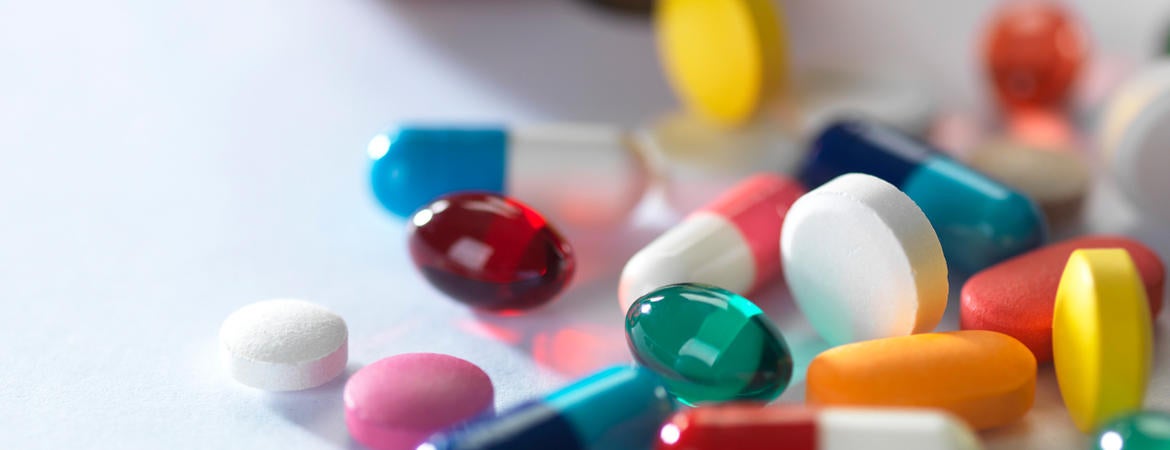
Though no proven treatment for COVID-19 currently exists, UC Riverside virologist Juliet Morrison feels there’s a good chance one will emerge. Morrison, an assistant professor in the Department of Microbiology & Plant Pathology, investigates the science behind promising avenues for new antiviral therapies. She explains what those are and weighs in on drugs being tested.
Born in Jamaica, Morrison is a first-generation college student who received her bachelor’s degree from Bard College and her doctorate from Columbia University. She completed postdoctoral work at Mount Sinai School of Medicine in New York.
You’re teaching a class this quarter about host responses to viral pathogens, which is the first of its kind at UCR. What are students learning that is relevant to COVID-19?
Most people teach virology from the point of view of the virus, and what it does in the cell. But I’m interested in how our body’s own immune system encourages or prevents diseases. In many cases, it is the body’s response to a virus that causes the symptoms of an illness.
For example, if you’re infected with Dengue fever, you will experience hemorrhagic fever that can lead to shock or death but usually after you’ve already cleared the virus. The virus provokes the body to produce a storm of cytokines — inflammatory molecules that lead to blood vessel leakage and fluid accumulating in the lungs. The body becomes dysregulated. This applies to the 1918 Spanish flu, severe influenza infections, and COVID-19 as well.
Therefore, some COVID-19 therapy research is focused on our bodily responses, not on the virus itself.
What is an example of such a therapy currently being tested?
Interferon alpha and beta are drugs being touted for COVID-19 patients. Interferons are currently used to treat multiple sclerosis and used to be a hepatitis C treatment. Interferons are types of cytokine produced by mammals and can also be manufactured in modified E. coli bacteria. In humans, they serve as master regulators of our immune response, telling our bodies to make antiviral molecules.
Most cells in our bodies have interferon alpha and beta receptors on their surfaces, so utilizing this drug could have wide-ranging flu-like side effects, such as muscle aches, diarrhea and nausea. It’s very unpleasant.
Can you weigh in on other types of COVID-19 therapies?
There is currently no evidence that any of the potential COVID-19 drugs being tested actually work in the clinic. Most of the drug trial results that have been published aren’t peer reviewed and many studies were poorly designed. In some cases, they didn’t test the drug on enough patients, or there are confounding factors with the way they’re measuring whether a patient has COVID-19 or not.
Many patients in these studies are getting multiple treatments, so if a patient gets better, it’s hard to isolate which drug or combination of drugs might be the effective one. Also, showing efficacy in cell culture or small animal models doesn’t mean those results will translate into an effective drug for COVID-19 in humans.
However, the World Health Organization has set up a large international trial called Solidarity. It has some more stringent guidelines for correct testing and is double blinded so neither clinicians or patients know which is placebo or drug. That will help us learn whether a particular drug made the difference for a patient whose health improved after treatment.
Many people are touting Remdesivir as a potential treatment. What can you tell us about it?
Remdesivir was initially developed as a treatment for Ebola. It showed efficacy in rodents and nonhuman primates, but it didn’t work when tested in the clinic. It could not cure Ebola patients. Now they want to test it for COVID-19.
Based on the papers I’ve read, there’s some promise. This drug interacts with the protein that copies the viral RNA. It forces that protein to make errors when making copies of itself. Eventually, the virus has such a load of mutations that it just ‘poops out,’ meaning it’s no longer viable in our cells.
There’s a whole family of drugs like this that interfere with viral RNA replication. The questions we need to answer for this type of drug include whether they’re accessible to the cells in our bodies that we want to access, and what are the unintended effects of the drugs? Off-target effects are a big concern.
Can you weigh in on any other drugs being considered for use on COVID-19 patients?
Hydroxychloroquine is used to treat malaria and other conditions. It is completely untested for COVID-19. That some people are touting this as a remedy is worrisome for me. It means it could become scarce for people who need it most, like those with rheumatoid arthritis and lupus. It can also do more damage than you think. Some side effects include inflammation of the heart muscle and could lead to potential heart failure.
We want to be hopeful, but we cannot run at treatments blindly. We need the data from reliable testing to be sure they work. We may understand how something works at a cellular level, but we need clinical trials before we can be certain that something is effective.
Now that the WHO is involved and we’re running reliable tests, I’m hopeful we could start seeing real data in the next month.




